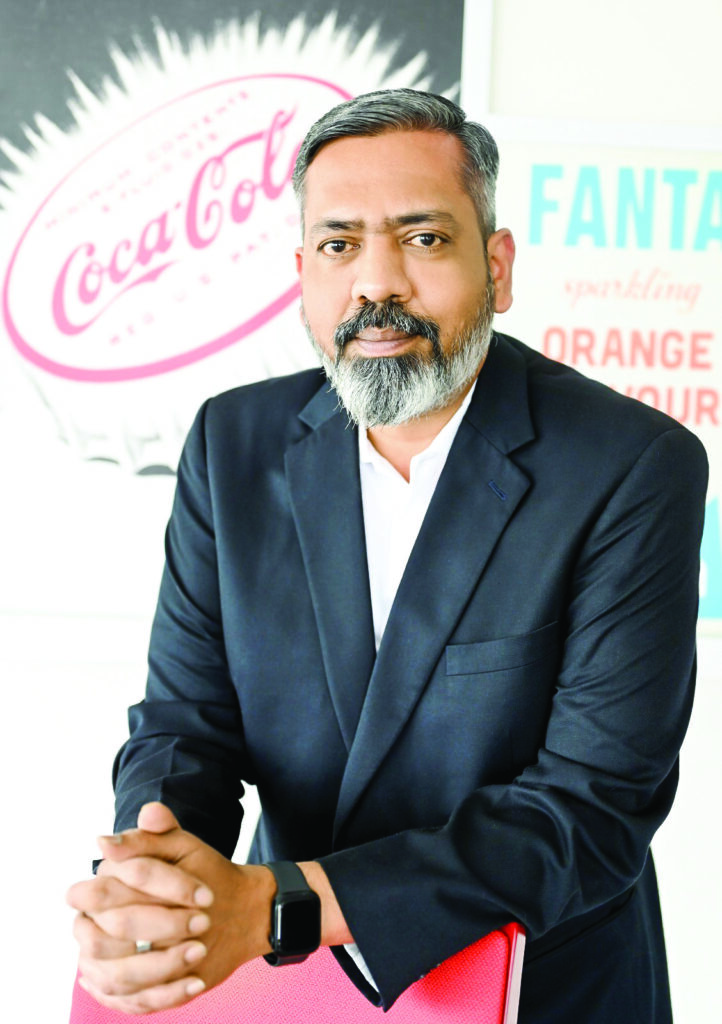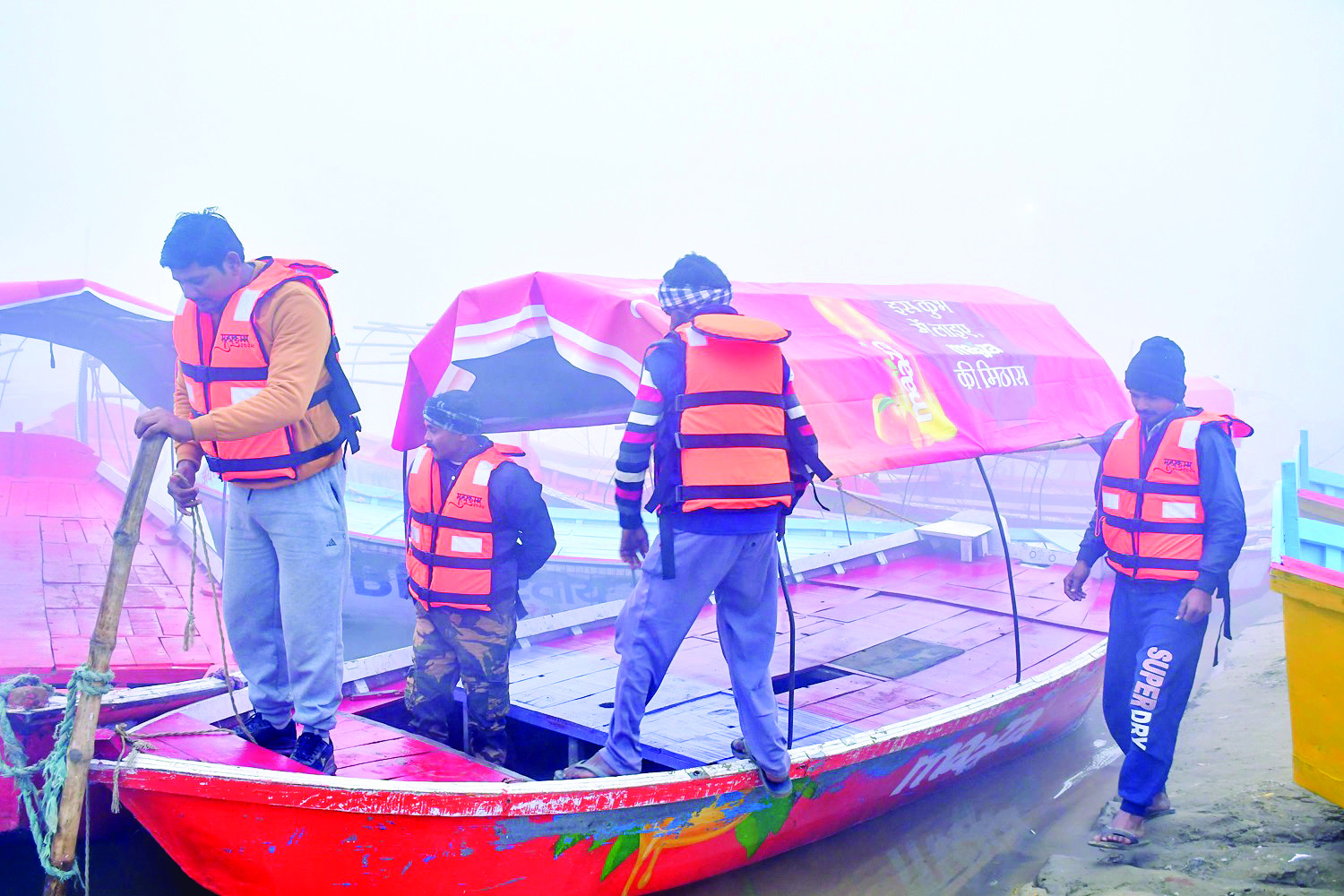New Delhi: Coca-Cola has taken the initiative to spearhead sustainability initiatives at Maha Kumbh 2025. As part of the Maidaan Saaf campaign, the company has created and distributed 21,500 recycled PET jackets for sanitation workers, boatmen, and waste management volunteers.
In an exclusive interview with The Sunday Guardian Rajesh Ayapilla, Senior Director, Sustainability & CSR, Coca-Cola INSWA highlighted the role of Maidaan Saaf campaign on positive environmental impact.

Q: What inspired Coca-Cola to take the lead in sustainability initiatives at Maha Kumbh 2025, and how does it align with the company’s broader environmental goals?
A: At Coca-Cola India, we are deeply committed to creating a positive environmental impact. Our focus is on increasing the use of recycled materials in primary packaging, supporting packaging collection infrastructure, and advocating for policies that enable a more sustainable future. To achieve these goals, we collaborate with both local and global partners. Maha Kumbh 2025 presented an incredible opportunity to work alongside PHD Rural Development Foundation (PHDRDF) and Prayagraj Mela Authority (PMA) to advance these efforts at one of the world’s largest cultural gatherings.
In 2023, we first launched the Maidaan Saaf campaign, inspired by the opportunity to promote effective waste management at large-scale gatherings across the country. Events like the Maha Kumbh draw millions of people, making it a perfect platform to demonstrate how collective action can lead to significant change. Through this campaign, we are trying to showcase innovative recycling practices and encourage people to take small yet impactful steps toward reducing waste.
Q: Can you elaborate on the ‘Maidaan Saaf’ campaign? What is its primary objective, and how has it been received so far?
A: The Maidaan Saaf campaign, which began in 2023 during the ICC World Cup, was designed to promote innovative waste management and recycling practices at large-scale events. During the World Cup, we introduced national flags and ICC Unity flags made from recycled PET bottles, installed Reverse Vending Machines (RVMs), and created recycled jackets for our Safai Saathis (cleanliness partners). Building on the success of this campaign, we’ve since activated Maidaan Saaf at several cultural events over the past two years. At the Maha Kumbh, the campaign focuses providing recycled products like life jackets and waste worker jackets made of recycled plastics, and changing rooms for women made from recycled multi-layer plastics. It also engages waste pickers, sanitation workers, and volunteers to enhance waste segregation and recycling efforts while establishing dedicated waste collection zones to reduce waste and send collected plastic waste back on the recycling ecosystem.
Q. The distribution of 21,500 recycled PET jackets is a commendable initiative. What message does Coca-Cola want to convey through this gesture?
A: Through the distribution of 21,500 recycled PET jackets, Coca-Cola aims to highlight the tangible impact of recycling and showcase how waste can be transformed into valuable resources. This initiative emphasises that sustainability is not just about reducing waste but also about creating circular economies where materials are reused innovatively. By equipping individuals such as volunteers, sanitation workers, and other stakeholders with these jackets, we want to highlight that sustainability is achievable when communities work together to close the loop on waste.
Q: Can you share more details about the reverse vending machines and the changing rooms for women? How do these projects contribute to sustainability at the Kumbh?
A: The reverse vending machines (RVMs) at the Maha Kumbh are designed to promote responsible disposal of PET bottles. Managed in collaboration with NGO partner, ReKart, these machines provide a convenient way for pilgrims to dispose of plastic waste, ensuring it is collected and sent for recycling. Similarly, the women’s changing rooms, created from recycled multi-layer plastic, in partnership with Econscious, offer a safe and comfortable space for women pilgrims to change. We also have educational messages on the changing rooms created by top illustrators in India to raising public awareness about the importance of waste segregation and recycling.
Q. How has Coca-Cola collaborated with local authorities, NGOs, or other stakeholders to ensure the success of these initiatives? Also with local communities, such as sanitation workers and boatmen, to make these initiatives meaningful and impactful? Mention NGO partners
A: The Coca-Cola India and its foundation, Anandana, has collaborated with the PHD Rural Development Foundation (PHDRDF) and Prayagraj Mela Authority (PMA) to spearhead sustainability initiatives at Maha Kumbh 2025. We have also collaborated with several organisations to ensure the success of its sustainability initiatives on the ground such as with Go Rewise to recycle PET bottles into waste worker jackets, safety jackets and volunteer jackets, while Econscious is transforming hard plastics into women’s changing rooms. ReKart is the on-ground waste management partner, is actively collecting waste from hydration carts and Reverse Vending Machines (RVMs), ensuring efficient waste segregation and recycling.
Q. Beyond Maha Kumbh 2025, what are Coca-Cola’s plans for driving sustainability and creating long-term environmental impact in India?
A: Behavioral change takes time, but campaigns like Maidaan Saaf play a pivotal role in planting the seeds for a more sustainable future. By engaging directly with individuals—whether it’s through educating pilgrims, collaborating with sanitation workers, or demonstrating the impact of recycling—we’re trying to show that waste isn’t just discarded material but a resource with immense potential. We believe that by integrating such initiatives into large-scale events, we are helping not only create immediate impact but also try and inspire lasting habits that communities and organizations can adopt beyond the event

